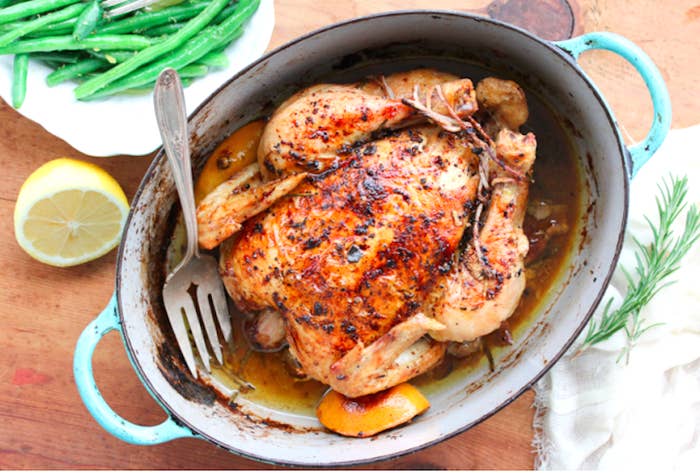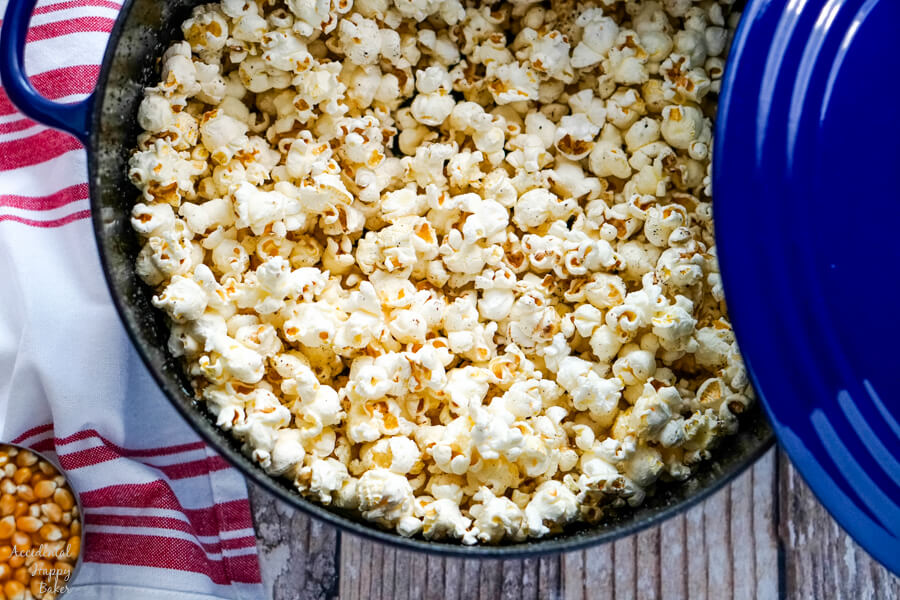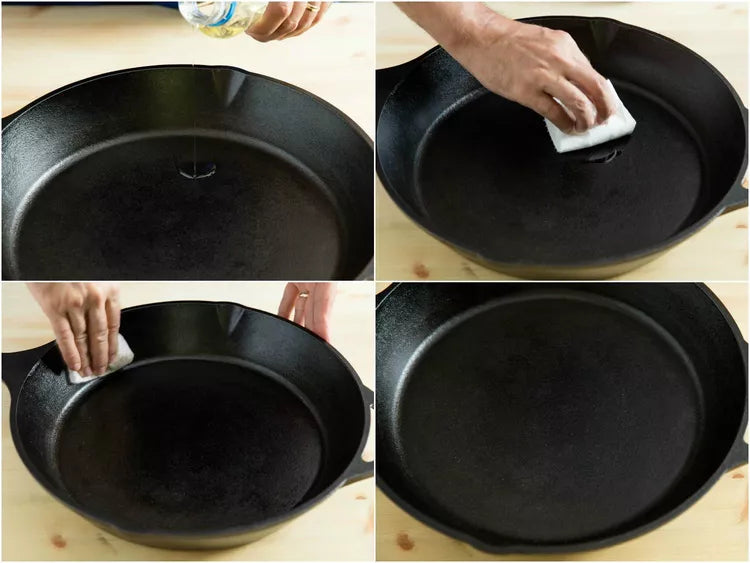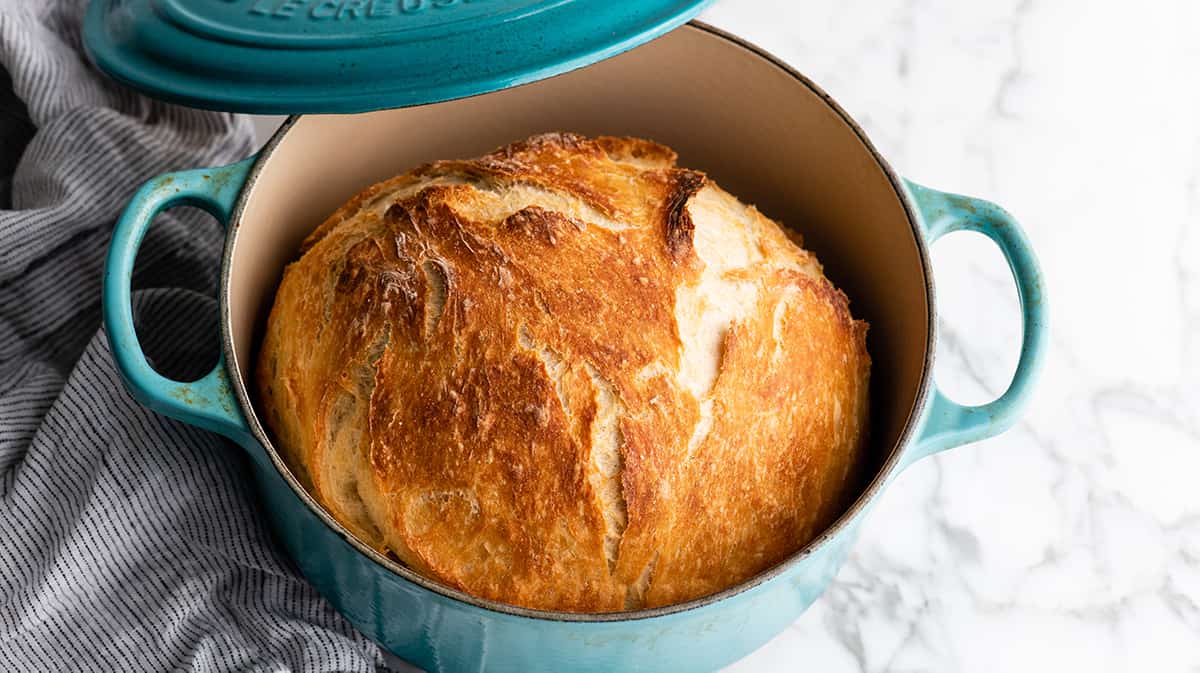Cleaning your Dutch oven, especially if it's made of cast iron, can be quite a challenge. As a kitchen professional, knowing how to clean dutch oven cast iron is more than just a necessity; it's an essential skill that can greatly enhance your culinary experience. A well-maintained Dutch oven not only lasts longer but also cooks better. In this guide, we'll cover various methods and tips to keep your Dutch oven in top-notch condition.
Before diving into the cleaning methods, its important to understand why you should regularly clean your Dutch oven. Not only does it prevent the build-up of residue that can affect flavor, but thorough cleaning also minimizes the risk of rust and ensures the longevity of your cookware. So, lets explore some effective techniques for maintaining your cast iron Dutch oven.

Understanding Your Dutch Oven
A Dutch oven is essentially a heavy pot with a tight-fitting lid, usually made of cast iron. Cast iron's ability to retain heat makes it a favorite among chefs. However, this material requires a specific cleaning regimen to avoid damaging its seasoning. Hence, knowing how to clean dutch oven cast iron is crucial for kitchen professionals.
The Basics of Dutch Oven Care
There are a few fundamental things to consider when cleaning your Dutch oven:
- Seasoning: This is the non-stick layer created by applying oil and heating your cast iron. Avoid using soap unless absolutely necessary, as it can strip the seasoning.
- Temperature: Allow your Dutch oven to cool before cleaning. Sudden temperature changes can cause it to crack.
- Material: Use only non-abrasive sponges or cloths to clean the surface. Steel wool can ruin the seasoning.
Steps to Clean a Dutch Oven
Now, lets delve into the step-by-step methods you can use. Make sure to keep your Dutch oven handy, along with the materials listed:
- Warm Water: After cooking, let your Dutch oven cool slightly. Then, fill it with warm water. This step helps loosen stuck food particles.
- Scrub Gently: Use a soft sponge or cloth to scrub away any attached food. Never use harsh chemicals or scouring pads.
- Stubborn Residue: If theres stubborn residue, you can boil water in the Dutch oven to help lift the food particles.
- Drying: After cleaning, dry it thoroughly to prevent rust. You can place it on a low heat for a few minutes to ensure no moisture remains.
- Reapply Oil: If the seasoning looks deficient, coat the inside with a thin layer of high-smoke point oil, like vegetable or grapeseed oil.
Common Mistakes to Avoid
When cleaning your Dutch oven, watch out for these common pitfalls:
- Using Soap: While a little soap might seem harmless, it can strip the seasoning. Only use it if cleaning a particularly greasy stain, and rinse thoroughly afterward.
- Stacking Cookware: Avoid stacking your Dutch oven with other cookware without a barrier, as it can scratch the surface.
- Ignoring Drying: Leaving moisture trapped inside the Dutch oven can lead to rust. Always ensure its fully dried.
Restoring Your Cast Iron Dutch Oven
If your Dutch oven has lost its shine and seasoning, don't despair. You can restore it!
- Deep Cleaning: If the seasoning is flaking or if rust has formed, deep cleaning is necessary. Use a mixture of coarse salt and water to scrub the interior.
- Re-Seasoning: This involves applying a thin layer of vegetable oil and baking it upside down in the oven at high temp (about 450F) for an hour.
- Regular Maintenance: Regularly apply oil after cleaning to maintain that beautiful seasoning.
:max_bytes(150000):strip_icc()/dutch-oven-tout-b111718c4c5e4f44b3619b43c6e30e99.jpg)
Additional Resources and Tips
For more information and tips on cast iron care, check out these great resources: Check Seasoning, Re-season Cast Iron, and Season Without Oven. Want to learn great Dutch oven recipes? Refer to this site.
FAQs
1. Can I use soap on my cast iron Dutch oven?
It is generally not recommended to use soap on your cast iron Dutch oven, as it can strip away the seasoning. However, a small amount can be used in certain cases, but always rinse thoroughly afterward.
2. How often should I re-season my cast iron Dutch oven?
The frequency of re-seasoning depends on usage. If you notice food sticking or if the surface looks dull, it's time to re-season.
3. What should I do if my Dutch oven gets rusty?
If rust appears, scrub the affected area with coarse salt and a little oil, rinse, dry thoroughly, and then re-season.
By following these steps and tips on how to clean dutch oven cast iron, your cookware will remain a trusted tool in your culinary arsenal for years to come.
This article contains affiliate links. We may earn a commission at no extra cost to you.






Leave a comment
This site is protected by hCaptcha and the hCaptcha Privacy Policy and Terms of Service apply.